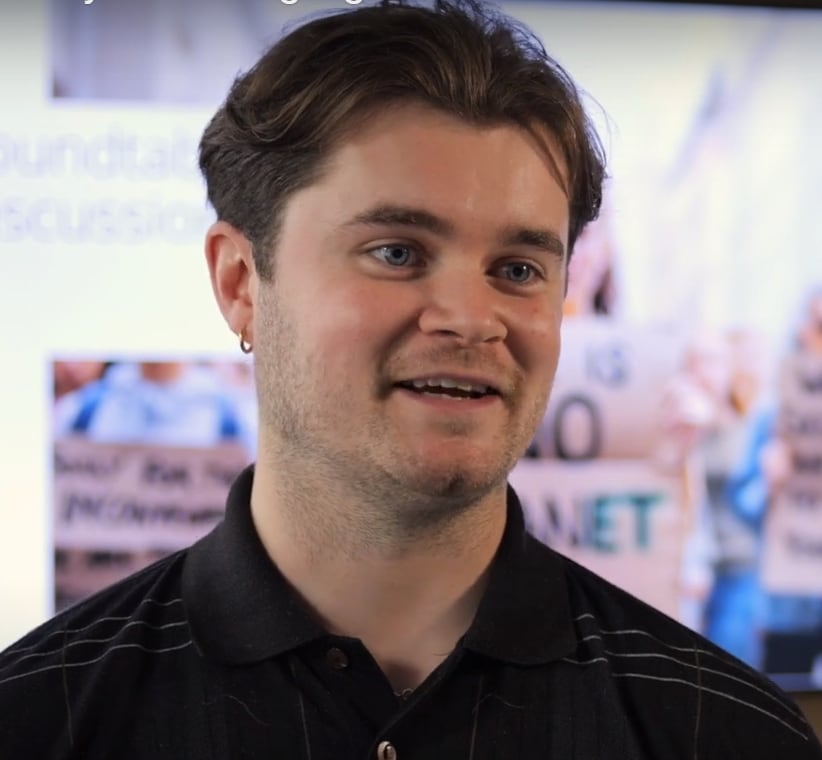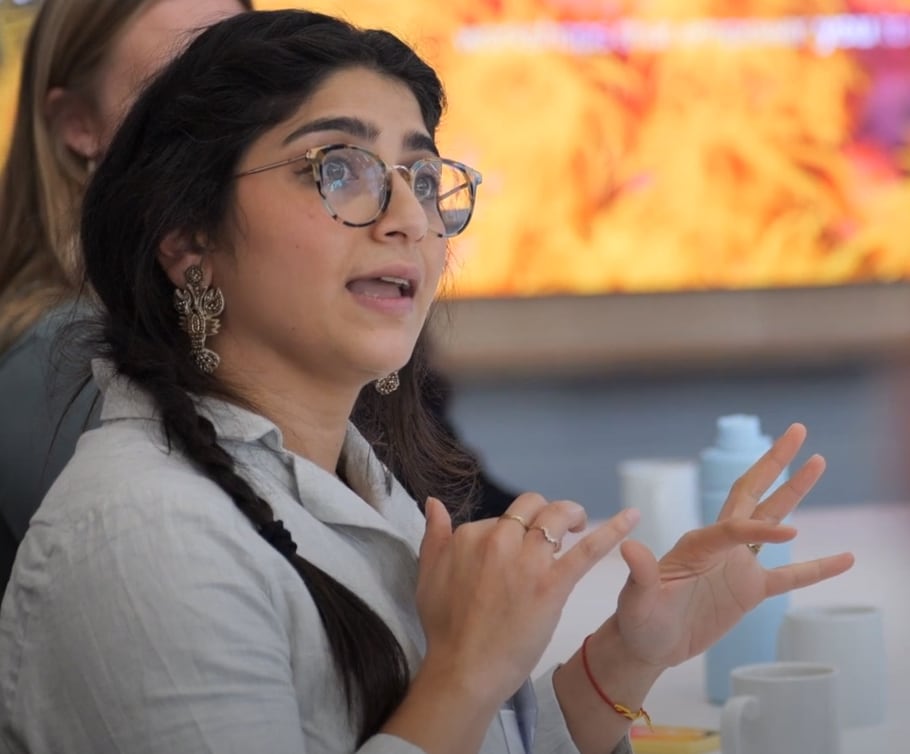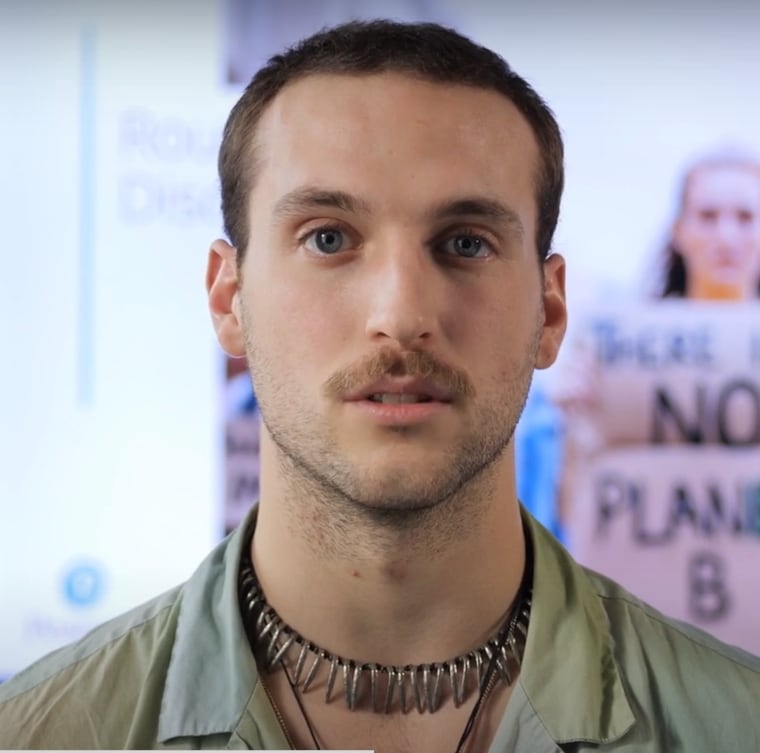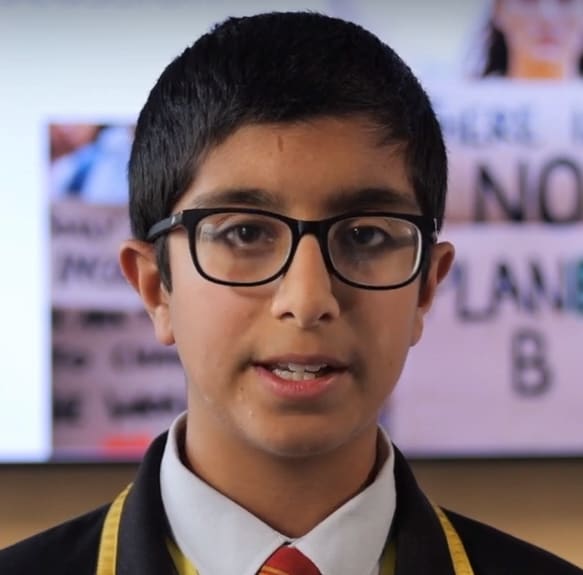Students on: Building brighter greener futures
Young people share their hopes for the future and the environmental actions they're taking now.
There has never been a more important time to consult, listen to and engage young people on their views on climate change and the solutions they would like to see.
At Pearson, we care about what students have to say and we know just how much learners care about climate change - the 2023 Pearson School Report revealed that 91% of students think that it’s important to look after the planet, nature and animals.
Back in November 2023, we brought together a selection of students for our Sustainability Forum, ranging from secondary school age to post-grad, to get their take on aspirations and expectations for the future, and what initiatives are being undertaken by students nationwide. Here are some of the key things they told us.
Aspirations
We asked the students what their aspirations were and what they envisaged the world would look like in 2025 if we were able to make the changes necessary to address the environmental challenges we currently face.
‘For me, it would be stopping fast fashion and single-use products. People would change their mindset and have a shift in how they think. We’d reuse things and not have a throwaway society,’ said Gracie, who had left school the previous summer.
For Callum, his aspirations are less tangible but just as important.
‘We live in a world of disconnection, dissatisfaction, and isolation. The changes that we need to make are all about reversing those values, so connecting more, listening to different opinions, connecting with the planet and ourselves and our communities. If this happened, the world that will be a part of will be more local, it'll be more communal, it'll be more regenerative.’
Others spoke about their desire for humans to have a more harmonious relationship with nature, their hopes that sustainable options would be the standard in the future, rather than something that you have to actively choose - and there was an overarching goal of every single person having their basic needs met.
Each of their hopes for the future showed their optimism and drive for change, but for these aspirations to be met, huge changes need to be implemented now, which the learners also had an incredible understanding of. They outlined their expectations for policy changes to help with this.
Expectations
Interestingly, a huge focus amongst students was on education policy; at a classroom, school and national level.
Gracie, who left school last summer, says that she would love to see education policy change ‘so teachers have the space and resources to actually teach environmental education within schools.’
Elliot, who only became involved in sustainability initiatives when he went to university says that this was because of a lack of time and space given to it at school. He now works for his university in their sustainability department to help implement the education that he missed out on.
Adam, in Year 12, also identified this as a huge barrier.
‘For many people, it's so hard to learn about sustainability because of the under-education in schools, which is due to different budget cuts and time constraints.’
This aligns with what teachers are calling for. The 2023 Pearson School report showed that 3 in 5 teachers believe that schools have a powerful role to play in shaping sustainably minded citizens, but 4 in 5 teachers cited ‘time pressures from an already crammed curriculum’ as the main barrier to delivering environmental education.
Eco-anxiety was identified as a barrier to progress and one learner said that for climate action to continue amongst students, emotional literacy needs to be taught in schools and that safe spaces need to be created within schools for learners to be able to communicate how they are feeling. The group also wanted to see teachers and senior leadership teams supported in schools to help drive changes.
Student initiatives
The 2023 Pearson School Report revealed that an incredible 9 in 10 schools across England are taking some action to protect the planet, and the forum reflected this. It showed just how many sustainability initiatives are happening across schools already.
Rayhaan spoke about the bee club initiative at his school, to help protect bees and educate the students about their importance. The school also has litter-picking teams that patrol the school grounds and ensure waste is properly disposed of and recycled.
Many of the learners said that their schools or colleges have cut back on plastic usage, including college student, Olivia.
‘My secondary school was completely plastic-free. In the cafeteria, we had cans for water, and all of the plastic cutlery was replaced with wooden cutlery. It’s the same at my college; all the food comes in little containers with wooden knives and forks, which has been something that I’ve been able to implement in my personal life.’
Other students were part of eco-councils at their secondary schools and spoke about the importance of the youth voice.
In the School Report, Becki Huth, Forest School and Sustainability Leader at Cutteslowe Primary School told Pearson about their animal-keeping initiative that was started to help socialise the children and teach them about animal welfare and sustainable farming practices. However, the project has had unexpected and far-reaching results.
‘We’ve seen students who have previously struggled with learning or attendance flourish as they gain a sense of meaning coming in early to feed our school goats and chickens. We see fewer exclusions and suspensions as children connect with nature each day through our outdoor curriculum and Forest School and are made to feel comfortable.’
Speaking to the students at the event showed us how much there is to be positive about – their optimism and drive for change, their knowledge of the necessary next steps, and the initiatives they are already implementing make me feel hopeful for the future.
Pearson is running a second Student Sustainability Forum in June 2024. This one will be virtual and any school can join. To sign up, visit the Student Sustainability Forum webpage




